Sweaty feet are common amongst people who wear work boots for long hours every day. The condition spans across all types of workers, from construction workers to rig workers to those who work in the kitchen. While we know that it is not a new thing, you can always find ways to mitigate the condition.
So, if you want to know how to keep feet from sweating in work boots, simply maintain good feet hygiene and use the proper chemicals as well. These include powders, tea treatments, and even using OTC soaps to wash your feet. But there are several other things you need to know about sweaty feet. Find more details below.
What Causes Feet Sweating?
Feet sweating results from hyperhidrosis, body weight, degree of feet hyperactivity, foot condition, etc. First, we have to establish that sweating is the body’s effort to cool down the internal systems and organs. Thus, you shouldn’t worry about sweating excessively on a sunny day. We sweat in almost all parts of our body, the feet inclusive.
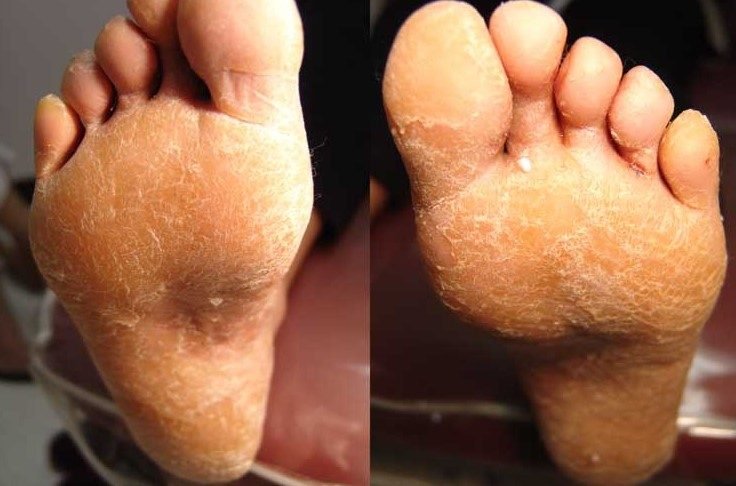
However, sweaty feet result from different things. Fundamentally, our bodies sweat to:
- Excrete salts, water, and other used and unwanted chemicals.
- To regulate our body temperature and cool down internal heat by wetting the skin surface.
- Skin protection from bacteria. As sweat is mildly acidic, the body excretes it to kill some bacteria on the skin. Notably, sweat helps the skin be flexible.
That stated excessive sweating can be a very uncomfortable condition, eventually leading to smelly feet. If you experience this, you will agree that it is often an embarrassing situation when your feet produce odor. So, let’s see a few causes of the annoying condition:
- Bodyweight: The body weight of an individual significantly influences the person’s sweating patterns. This is because people who weigh more exert more energy and take a longer time to cool down when they sweat.
- Quality of boot: Some shoes are low quality and non-breathable, invariably resulting in excessive foot sweating. Poor quality boots not only make your feet uncomfortable, but they are also non-breathable, can be tight, and result in making you have sweaty feet. On the flip side, wearing breathable work boots saves your feet from the risk of having sweaty feet and garnering germs.
- Hyperactivity: Another primary cause of sweaty feet is top activity and pressure on your feet. When you work excessively, and for a long time, you will invariably risk your feet to sweat a lot. More importantly, when you work actively under hot temperatures for a prolonged time, that condition will put your feet under pressure. This weakens and stretches your sweat glands thus, making your feet to sweat more often than regular.
- Foot condition: Your foot condition is also another factor that can cause sweaty feet. Studies also show symmetrical feet are more liable to sweating. Furthermore, lack of good hygiene can influence your feet sweating. This is because when you wear dirty socks can spur more bacteria infections. Also, when you don’t allow your boots to dry properly before wearing them, the remaining bacteria in them can catalyze infections on your feet.
- Hyperhidrosis: This is a condition whereby an individual’s body consistently creates sweat even while the feet are resting. Research shows us that over 365 million persons (5% of the world’s population) have at least one form of hyperhidrosis. For individuals who have this condition, their sweat pores in the affected regions don’t ever rest from constantly producing sweat.
Can Sweat Damage Work Boots?
Sweating in excess can damage the texture of the interior and alter the smell of the boot. In addition, since the sweat is liquid and acidic, it erodes the materials while soaking them up slowly. Thus, destroying the interior of the work boots over time.
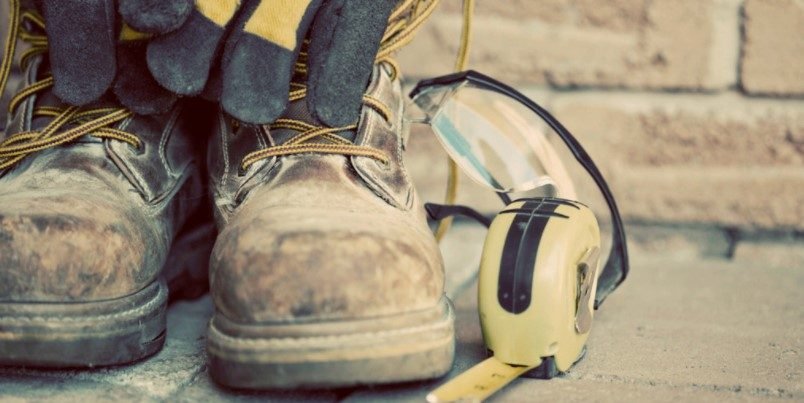
The human feet have more than 500,000 sweat pores, and for individuals that have hyperhidrosis, that means more challenges.
How To Keep Feet From Sweating In Work Boots?
You can keep your feet from sweating in your work boots by maintaining proper hygiene, using the right socks, etc. In addition, there are several other ways to prevent your feet from sweating while working.
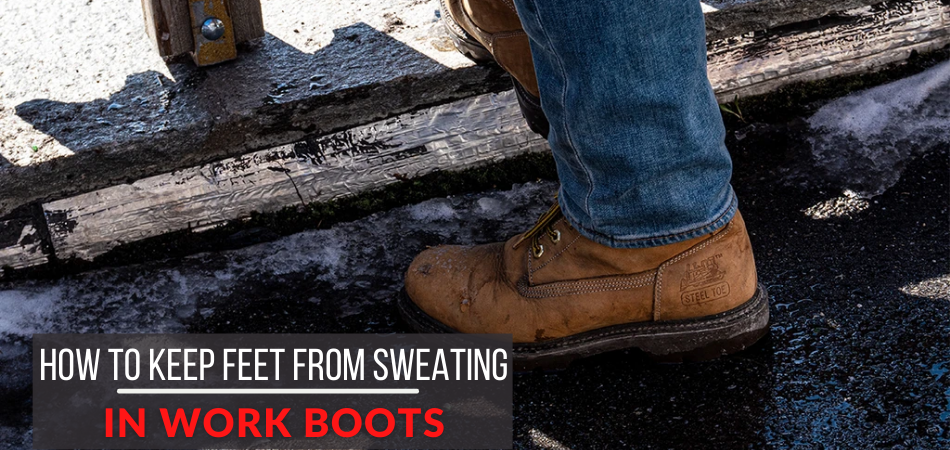
So let’s look at the few methods of preventing your boos from sweating, smelling, and spurring infections.
1. Wash your feet properly
One vital method of preventing your feet from excessive sweating is washing your feet properly every day. This is useful because when you wash your sweaty feet, it cleans off the germs and cools down your skin. Thus, reducing more sweating.
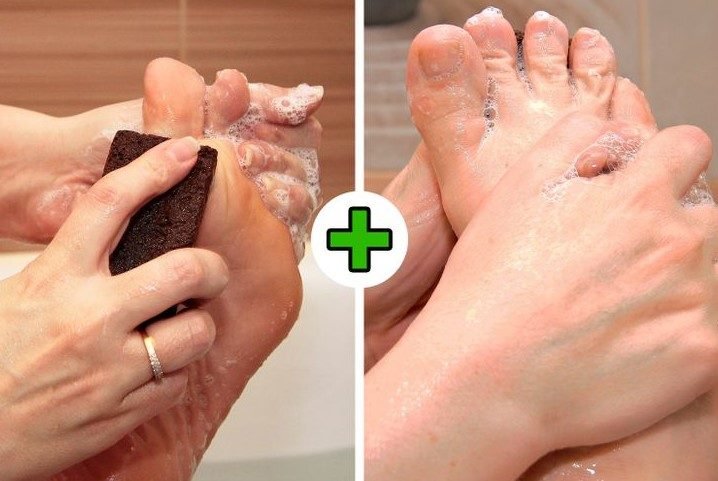
To do this, ensure to warm-wash your feet using anti-bacterial soap. Scrub all parts of your feet gently and repeatedly until you are sure that your feet are clean. After that, dry your feet thoroughly, cleaning the region between your toes well.
Ensure to dry your feet properly because wet feet enable fungus and germs (bacteria) to spread faster and freely.
2. Eat and Drink Right
Noting that 60% of the human body comprises water, one thing you don’t want to lack is water. This is because water is one of the pivotal regulators of body temperature. Thus, to maintain your body heat and weight, ensure to drink sufficient water. Once your internal organs have cooled down, you stand a lesser chance of sweating.
3. Use Socks
Not only using any type of socks, while deliberating on what socks to wear, ensure to go for sweat-absorbing socks. These pairs allow the sweat to soak them up while cooling off your feet. Also, they provide some aeration for your feet and wick away the sweat-soaked in them.
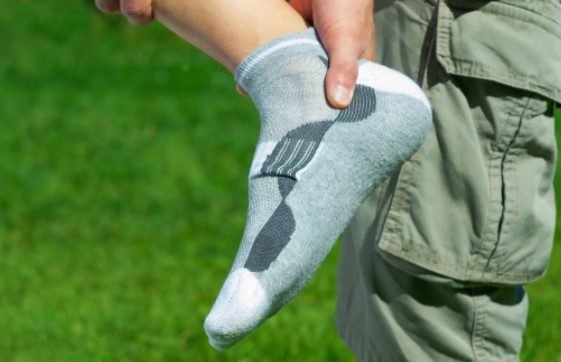
4. Foot Powder
Directly applying foot powder to your feet or in your pair of boots will save you stress in worrying about hyperhidrosis. Apply this after you have washed your feet. Also, ensure to rub a sufficient amount of powder on your feet.
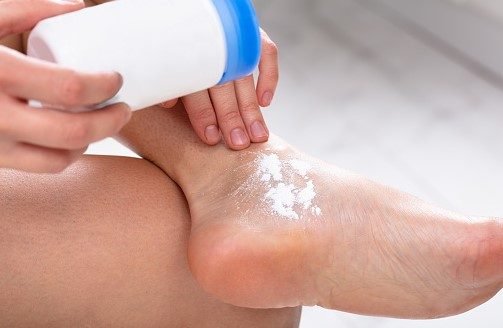
Alternatively, you can use cornstarch or baking soda as they are both very effective in reducing sweaty feet while wearing your boots.
5. Foot spray
The antiperspirant foot spray is another great option to consider while deliberating upon preventive methods for sweaty feet. It does a great job of minimizing your chances of sweating. Basically, the antiperspirant foot spray is very easy to use, as you just need to apply very little on your feet after washing them.
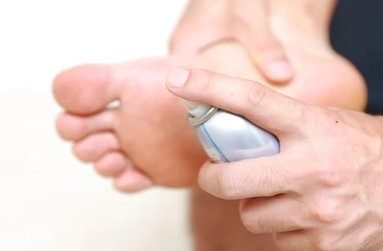
6. Provide Sufficient Airflow
This is an essential method you should practice at least once daily. Take off your work boots and socks and allow air to hit your feet for some hours. This way, you let the foot breathe. What this does is that it allows the air to cool down your feet.
Ensure to practice this at least once a day because the external temperature is usually cooler than the temperature within your boots. So, we advise you to take off your boots and let your feet breathe.
7. Frequently dry your boots.
Also, in the list of effective methods for reducing sweaty feet is the art of drying your work boots as often as you can. Dry them at night and during the daytime directly under the bright sunlight.

When you dry your boots, all growing bacteria will die off faster; loosen mesh lining that enables aeration through the boots. Also, when you dry your work boots, the pungent sweat odor will evaporate as well.
Putting on a thoroughly dried work boot will provide lesser internal temperature and increase the airflow into the boots.
8. Change your Socks regularly.
To prevent your feet from increased infection spreading, sweaty, and smelly feet, ensure to change socks regularly. Repeating socks over time exposes your feet to reproducing bacteria that keep growing as you repeat it without washing. Thus, wash your sock regularly and change them as often as possible.
9. Essential Oils
Using heavily diluted tree oil directly on your feet will help dry your skin. Not only does it expel every smell from your boots, but it also has antibacterial composites that reduce all foot smells. However, ensure to dilute the tree oils properly, as it can leave burns on your skin.
10. Use shoe Inserts
Shoe inserts are a cheap and effective solution to sweaty and smelly feet. Also, they don’t give any challenges in selecting the right size. In addition, shoe inserts help absorb all moisture within your boots, making your feet dry at all times. Some shoe inserts contain alluring fragrances, eliminating all odors.

11. Stuff your Boots with Papers
Stuffing your work boots with paper, preferably newspaper, will help absorb all internal moisture and keep the shoe dry before you’re ready to use.
12. The Black Tea Solution
Using black tea to eradicate sweaty feet is an optimal choice. This is because the black tea comprises tannic acid, which to a large extent, reduces sweat. To do this, fill up a large container or bowl with warm water. Then, dip three bags of black tea in the bowl and allow them to brew for close to 30 minutes.
How Do You Keep Your Feet Cool At Work?
You can keep your feet cool at work by choosing the proper kind of boot, exfoliating your feet, or using lemon juice, etc. Asides from these, there are several other ways to keep your feet cool at work. They include:
- Exfoliating
- Using boot freshener
- Select the right boots
- Put on absorbent socks
- Apply lemon juices
Frequently Asked Questions
What shoe material is best for sweaty feet?
The best material for sweaty feet is leather. Thus, ensure to get footwear made of leather to help with your sweaty feet. For athletic shoes, nylon mesh is ideal for providing breathability.
What stops your feet from sweating?
There are several ways to stop your feet from sweating, and of very significant means is by using antiperspirant. Also, ensure to wash your feet frequently, or use talc powder on your feet.
What powder helps sweaty feet?
Talcum powder and baby powder are a very effective duo to apply on your feet to prevent them from sweating.
Conclusion
How to Keep Feet From Sweating In Work Boots? First, ensure to choose breathable boots and use shoe inserts, socks, and even essential oils. These, among a few, will help dry your feet and prevent your boots from stinking.
Also, maintain good personal hygiene by changing socks regularly and washing your feet daily. Follow these steps, and you will save yourself future embarrassments and possible feet infections.

